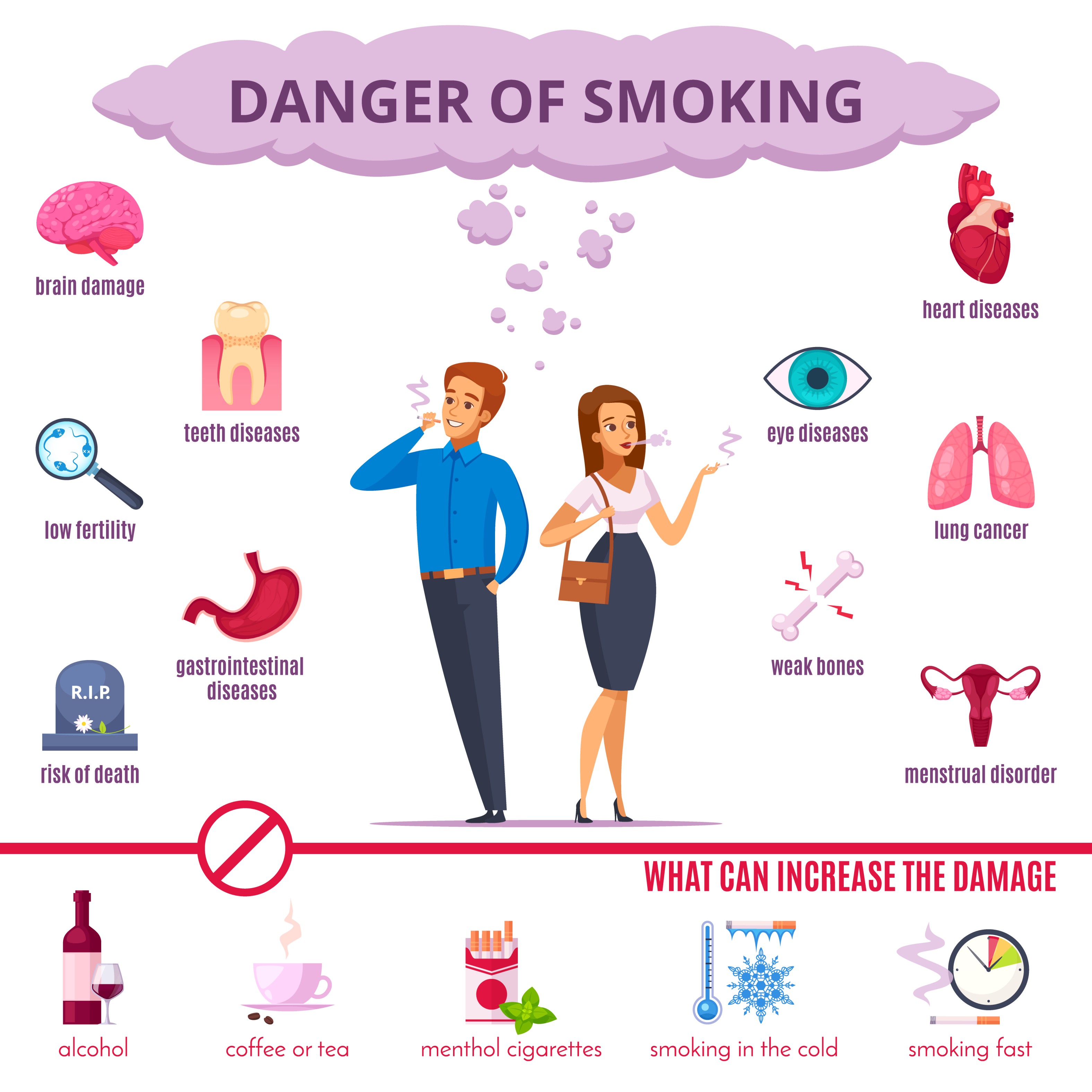
Asthma and Smoking: Risks and Quitting Strategies
Introduction: Smoking is harmful for everyone, but for people with asthma, it can be even more dangerous. Let’s delve into the risks of smoking for asthma and strategies to quit.
Risks of Smoking for Asthma:
- Worsening Symptoms: Smoking irritates the airways, making asthma symptoms like coughing, wheezing, and shortness of breath worse.
- Increased Asthma Attacks: Smoking increases the frequency and severity of asthma attacks, making it harder to control the condition.
- Reduced Lung Function: Smoking can cause permanent damage to the lungs, reducing lung function and making it harder to breathe, especially for people with asthma.
Quitting Strategies:
- Seek Support: Reach out to friends, family, or a healthcare provider for support and encouragement to quit smoking.
- Consider Nicotine Replacement Therapy: Nicotine replacement therapy, such as patches, gum, or lozenges, can help reduce cravings and withdrawal symptoms while quitting smoking.
- Behavioral Therapy: Cognitive-behavioral therapy or support groups can provide coping strategies and motivation to quit smoking for good.
- Set a Quit Date: Choose a specific date to quit smoking and stick to it. Prepare for triggers and challenges ahead of time to increase your chances of success.
- Avoid Triggers: Identify triggers that make you want to smoke, such as stress or being around other smokers, and find alternative coping mechanisms to deal with them.
- Stay Persistent: Quitting smoking is challenging, and it may take several attempts before you succeed. Stay persistent and don’t give up, even if you experience setbacks along the way.
buy rybelsus online https://cosmeticdermcenter.com/wp-content/uploads/2023/04/jpg/rybelsus.html no prescription pharmacy
Conclusion:
Smoking is harmful for everyone, but especially for people with asthma. By understanding the risks of smoking for asthma and implementing effective quitting strategies, you can improve your lung health, reduce asthma symptoms, and lead a healthier life.
buy prevacid online https://cosmeticdermcenter.com/wp-content/uploads/2023/04/jpg/prevacid.html no prescription pharmacy
To seek medical advice, always consult a Doctor.
buy super cialis online https://cosmeticdermcenter.com/wp-content/uploads/2023/04/jpg/super-cialis.html no prescription pharmacy
Here are our recommended experts. Click here
To read more on Respiratory disease . Click Here
Recent Posts
Dr. Aakash0 Comments
`Plinko Topu Qanunidirmi? Doğruluğu Yoxlayın`
Dr. Aakash0 Comments
Pin Up — Реальные промокоды, бездепозитный бонус за регистрацию
Dr. Aakash0 Comments
Official site Mostbet 💰 Huge Games Selection 💰 400 Free Spins
Tags
#support
arthritis
Blood tests
causes
Children
complications
coping strategies
diabetes
diagnosis
diet
eczema
exercise
Healthy Lifestyle
Heart Disease
heart health
High blood pressure
hormonal imbalances
Hormones
hydration
india
Indian patients
inflammation
lifestyle changes
management
medication
Medications
mental health
Nutrition
pain management
physical therapy
pregnancy
prevention
recovery
risk factors
signs
skincare
skin condition
stress management
stroke
support
surgery
symptoms
transmission
treatment
treatment options

